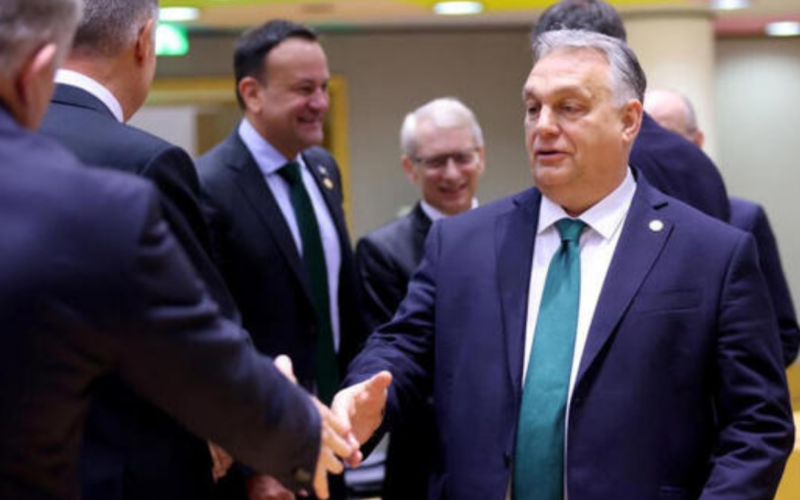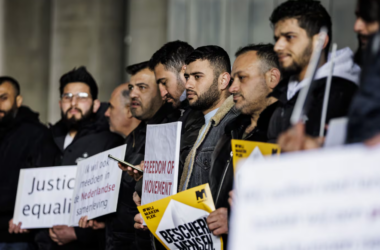In a significant breakthrough, European Union leaders have unanimously agreed to extend a substantial aid package of 50 billion euros ($54 billion) to Ukraine. The decision comes after weeks of resistance from Hungary, which had initially vetoed the aid package. The summit witnessed intense negotiations, with EU leaders urging Hungarian Prime Minister Viktor Orban to reconsider his stance in light of the critical situation posed by Ukrainian conflict, the most significant conflict in Europe since World War Two.
European Council President Charles Michel announced the historic decision on social media, stating, “We have a deal. Unity.” The 27 EU leaders reached an agreement on an additional 50-billion-euro support package for Ukraine within the EU budget. The aid is expected to bolster Ukraine’s long-term economic and financial stability as it enters its third year of conflict with Russia. Ukrainian President Volodymyr Zelenskiy expressed gratitude for the support, emphasizing its importance in strengthening his country’s resilience.
The aid package represents a crucial lifeline for Kyiv, heavily dependent on Western assistance in its fight against Moscow. Ukraine anticipates receiving the initial tranche of 4.5 billion euros from the EU in March. The agreement follows a prolonged deadlock with Hungary, and while specific details of the deal remain undisclosed, diplomats revealed that Hungary’s consent was obtained without committing to release frozen EU funds intended for the country, citing concerns about human rights and the rule of law.
With budget support secured, EU leaders are now shifting their focus to discuss military aid for Ukraine. However, challenges persist, with the bloc likely falling short of its target to send artillery shells to Ukraine. Disagreements between Germany and other member states raise uncertainty over the future of a military aid fund that has financed substantial arms support for Ukraine.
Hungarian Prime Minister Viktor Orban, known for cultivating close ties with Moscow, had been a prominent obstacle in reaching the aid agreement. While Orban did not comment on the recent deal, his resistance to the EU’s strategy of supporting Ukraine had strained relations. Orban’s recent criticism of the EU’s approach and his engagement in a farmers’ protest in Brussels hinted at the complexities surrounding Hungary’s alignment within the EU.
Leaders from various EU nations, including Germany, Poland, Belgium, and Finland, emphasized the importance of a unified stance in offering aid to Ukraine. Chancellor Olaf Scholz highlighted the EU’s solidarity, while Polish Prime Minister Donald Tusk urged Orban to reconsider his position. The decision to provide aid is particularly critical amid uncertainties about the future of U.S. aid to Ukraine.
The unanimous approval of a substantial aid package for Ukraine marks a pivotal moment for the European Union. Overcoming internal resistance, EU leaders have demonstrated solidarity in supporting Ukraine during a critical juncture in its conflict with Russia. As the financial and military aid unfolds, the EU’s role in shaping the trajectory of the conflict and offering stability to Ukraine gains prominence. The decision underscores the challenges of maintaining unity within the EU and navigating geopolitical complexities in the pursuit of shared goals.








